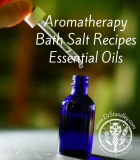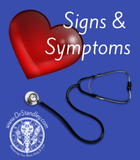
|

|
| Bach Flower Remedies |
Amino Acids A-Z |
Antioxidants A-Z |
Herbs A-Z |
Herbal Preps |
Minerals A-Z |
Vitamins A-Z |
|
|
 |
|
HYSSOP (Hyssopus officinalis)
DESCRIPTION: Hyssop can be topically in a salve or compress to treat skin irritations, burns, bruises, and frostbite. Hyssop oil is used as fragrance in soaps and perfumes. It is also used to flavor foods and extracts and as a flavoring in alcoholic beverages. POTENTIAL BENEFITS: Hyssop is useful for mucus congestion in the intestines. Hyssop is used orally to treat upset stomach, liver and gallbladder complaints, indigestion, colds, fevers, respiratory and chest ailments, sore throat, asthma, urinary tract inflammation, gas, and colic. It's also used as an expectorant and as an appetite and circulation stimulant. POTENTIAL SIDE EFFECTS: Hyssop may cause uterine stimulation. Using hyssop with anticonvulsants may counteract antiseizure effects. Pregnant patients should avoid use of hyssop altogether, it may cause hemorraging or miscarriage. Children should avoid use. Patients with seizure disorders should not use hyssop. It has been associated with tonicclonic seizures and neurotoxicity. PARTS USED: Leaves GENERAL USAGE: Capsules - Two 445 mg capsules by mouth three times a day. As an Extract - 10 to 15 gtt in water by mouth two to three times a day. As a Tea (1 to 2 tsp dried hyssop tops in 5 oz boiling water). Gargle or consume three times a day. DISCLAIMER **This web site's goal is to provide you with information that may be useful in attaining optimal health. Nothing in it is meant as a prescription or as medical advice. You should check with your physician before implementing any changes in your exercise or lifestyle habits, especially if you have physical problems or are taking medications of any kind. |
| 314.420.5099 |
| Questions regarding this site: webmaster@drstandley.com |
| Copyright 1999-2026: Dr. Loretta J. Standley - All Rights Reserved. |































